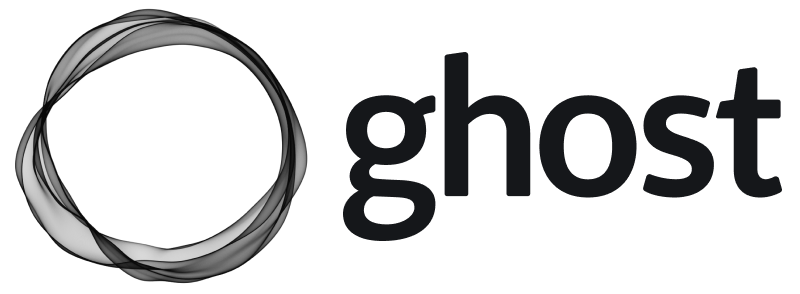Why I chose Ghost?
In the 90's starting your own website was dead simple. One simply created .html files with a text editor and uploaded them, along with images, to a web server – often the one that your ISP provided with your plan. Soon after came the visual editors, like DreamWeaver or FrontPage, that offered WYSIWYG-editing for laying out your pages. In the 00's content management systems (CMS) like WordPress or Joomla! started to make waves, but were still rather simplistic and it was easy to get started.
In 2020's the problem is that there are a million different platforms to build on, based on all sorts of technology stacks. Even the raw HTML files have made a comeback via static website generators. With virtually infinite amount of options, how to choose?
Build your own or use a third party?
Various social medias provide publishing platform as a service and make it easier to reach your target audience. The problem is that you are totally depending on the third party and in many cases they also own your content. It is typically very difficult to move your site's content elsewhere, if you would need to do so. Relying on third parties possess a significant risks.
- They may go out of business or become irrelevant. (Google Plus)
- They may change their business model at will. If it is free, then you are the product. (Medium)
- The content or culture of the platform may erode over time (Facebook, LinkedIn, Twitter/X)
If you are in it for the long run, you need to own the platform and the content in order to be future proof.
Do you want to be an administrator or a publisher?
Choosing the right CMS for you is a tedious task. The amount of options is almost infinite. Many of the software offerings are developer porn. In other words, they are made for developers by developers. This means that straight forward usability is not their primary goal - developers want developer features. Many platforms advertise how they are simple in terms of technology stack, but this usually means that they are complex to configure and administrate.
WordPress still exists and is a powerhouse for building websites. With the huge ecosystem of plugins and themes one can build just about anything on WP. This is great, if you have big plans to expand your online presence and add functionality later on, but if you are like me and wan't to focus on writing, it may be overkill.
For the sake of further future proofing I actually wanted to build this site using a flat file CMS (no database, only files) but I found none of them to be mature and polished enough for my purposes. I have a career, family and life, so I wan't to minimize the time I spend on administrating, in order to maximize the time I spend on writing.
The strengths of Ghost
Ghost started as a lean alternative to WordPress designed strictly for blogging, but has since added complexity (technological and features) and evolved into a commercial publishing platform. It targets authors who wan't build their business on producing high quality quality content, which is published on the web and distributed via newsletters. Many big names use Ghost and the system has built in features for paid subscriptions. Obviously you have to be a very good and professional quality author for someone to actually pay for your stuff. Personal blogs, such as this one, do not fit to this category.
The focus on being a publisher platform shows in the strengths of Ghost as a platform.
- It has an excellent content editor that is an absolute joy to write on
- Categorizing your posts with tags is dead simple. So is adding static pages to your website.
- The administration features are well laid out with good usability and have a gentle learning curve. You'll get the hang of it in no time, and building a simple blog like this one can be done in couple of hours.
- Ghost is open source, but backed by a healthy business model. It has been around for a decade. There is a good chance it will survive the test of time. Open source is nice, but projects tend to die or fade a away, unless there is a steady revenue stream for the primary developers.
- If you want to switch from your self-hosted site to a managed service, the migration should be relatively simple to Ghost Pro paid plans (somewhat expensive), or a managed service by a third party (cheaper).
Conclusions
For the return of BitBurners.com I needed a simple yet highly usable software stack and publishing platform, so that I can minimize the time spent on administration, allowing me to focus on writing. I trialed several different solutions for my purpose, including but not limited to Grav, Bludit and Automad. They all are awesome software projects with their own merits, but in the end I had to sacrifice my original requirement for a flat file CMS. Ghost is a mature platform with great usability that got me going much faster than any of the flat alternatives.
This is a learning process as I am using Ghost in production for the first time. I will be posting updates on how its going.
